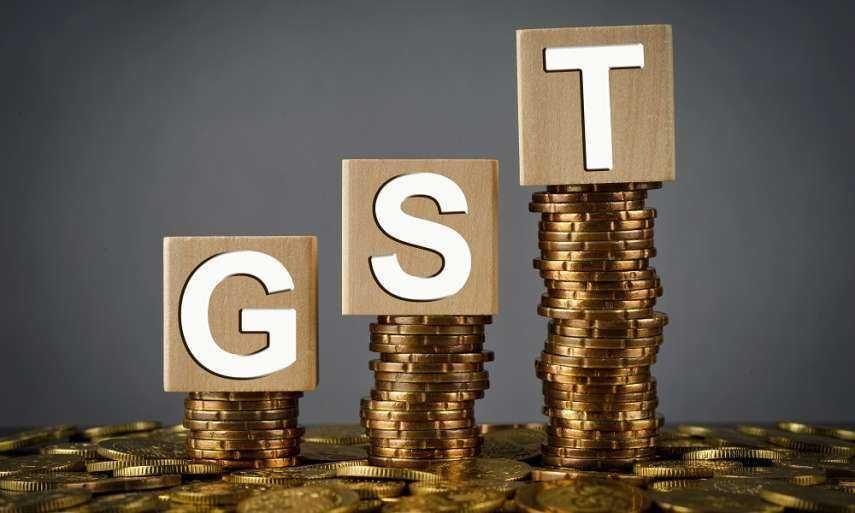This is an edited version of an article that was originally published in the May 2010 print edition of Teacher.
Your GST Compliance obligations can be complex and time consuming, so it’s well worth getting a good understanding of them, say Leneen Forde and Michael Kohn.
As a matter of government policy, education was an area of economic activity exempted from the operation of the Commonwealth’s goods and services tax (GST) through A New Tax System (Goods and Services Tax) Act 1999 (GST Act). Provided an education course falls within the definition contained in section 195-1 of the GST Act, it will constitute a GST-free supply pursuant to section 38-85(a).
It may have been expected that a school’s support entities, such as exempt not-for- profit parent associations, would be given concessional treatment to minimise or completely absolve such entities from obligations under the GST Act, but this has proven not to be the case. In practice, the impact of the GST Act continues to impose administrative burdens on exempt not-for-profit entities that undertake various fundraising activities on behalf of their school, so it’s worth understanding the compliance obligations in respect to some common fundraising activities undertaken by such entities associated with schools or by a government school itself.
It should also be noted that an entity’s tax status as a charitable institution, charitable fund, gift-deductible entity or other type of exempt not-for-profit entity may alter the treatment applicable to it under the GST Act. Here, we’ll be dealing generally with the application of the GST Act to exempt not-for-profit entities or government schools, but not non-government schools.
Registration for GST
Liability under the GST Act occurs when a supply is made by an entity that is registered under the GST Act or that the GST Act specifies must be registered. An entity must be registered where they carry on an ‘enterprise’ and the turnover of that enterprise exceeds the specified amount. There is also a requirement for an entity to obtain an Australian Business Number.
An enterprise is any activity or series of activities done, as is relevant, in the form of an adventure or concern in the nature of trade – that is a commercial activity that doesn’t amount to a business – or any activity or series of activities done by a charitable institution or entity covered by Subdivision 30B of the Commonwealth Income Tax Assessment Act 1997 – such an entity is one for which donations are tax deductible to the donor. The concept of activities in the form of an adventure is broad enough to cover almost any activity.
The threshold of an entity’s ‘GST turnover,’ as it applies to not-for-profit organisations, is $150,000 or more. An entity must register if its current GST turnover or project GST turnover exceeds the threshold. Proceeds derived from a GST-free supply are included for the purposes of calculating current or projected turnover. Consequently, even if an organisation’s turnover consists exclusively of GST-free supplies, but it exceeds the turnover threshold, it may be required to register for GST purposes.
Excluded from the calculation of turnover is the amount of GST itself received as part of proceeds collected for the supply and proceeds from a supply that is designated ‘input taxed’ by the GST Act. Current turnover is calculated for the 12-month period concluding at the expiration of the current month.
By contrast, projected turnover is calculated from the first day of the current month for the succeeding 12-month period. In calculating the current turnover, other amounts which are excluded from the calculation are: supplies for nil consideration; supplies that are made not in connection with an enterprise that the entity carries on; and supplies made from one member of a GST group to another member within the group.
In calculating projected turnover the same items noted above are excluded from the calculation.
Assuming that an entity is registered or is obliged to be registered pursuant to the GST Act, what obligations arise in the context of various common fundraising activities undertaken by an exempt notfor- profit organisation?
GST and gifts
Generally a gift made to an exempt not for-profit entity is not consideration for a sale and is not subject to GST. As we’ve noted, the value of the gift is excluded from the calculation of current or projected turnover. For a payment to be considered a gift it must be made voluntarily and no reciprocal benefit can be received by the donor.
A payment is not voluntary when there’s an obligation to make the payment or the exempt not-for-profit entity is contractually bound to use the payment in a particular way. A benefit will not arise to the donor in circumstances where the benefits actually received are of a trivial value that cannot be put to a use, say, a lapel badge, and is not marketable. Items which have more significant value such as a gift made in return for the provision of, say, a dinner or a painting are a material benefit. This issue may be avoided, however, in situations where the fundraising is conducted by the school, as we’ll show below in our discussion of fundraising events.
The following examples illustrate the difficult GST issues arising where gifts are made to an exempt not-for-profit entity which is registered or required to be registered pursuant to the GST Act.
Constance pays $300 to attend a dinner conducted by her school’s parents association, a not-for-profit organisation. The value of the meal provided at the dinner is $10 as most of it was prepared by volunteers of the parents association. Purchasing the ticket to attend the dinner by Constance is not a gift. The proceeds are consideration for the provision of the dinner and the proceeds include GST which must be remitted to the Australian Taxation Office (ATO), regardless of the fact that Constance’s payment was clearly intended as a gift.
Andrew purchases a coffee-making machine for $200 at an auction held at a fundraising event conducted by his school’s parents association. The machine has a market value of $100. The amount paid by Andrew cannot be split between the market value of the machine and the gift component. The total amount received is in return for a GST supply, the coffee machine, and the GST component of the proceeds must be remitted to the ATO.
GST and school tuck shops
If an exempt not-for-profit entity such as, say, a parents association conducts a tuck shop on the grounds of a primary or secondary school, it can choose to treat all sales of food through the shop is input taxed. This means that it doesn’t charge GST on sales and doesn’t claim GST credits on purchases it has made in running the shop. Otherwise, the sale of prepared food is a GST supply.
If it’s decided that sales are to be input taxed, the entity must keep records containing details about that decision, such as the passing of a resolution at a duly constituted meeting and recording such decision in the minute book of the entity, but doesn’t need to notify the ATO of its decision.
Further, as input taxed sales are not included in the calculation of turnover for registration purposes, choosing to treat all sales of food as input taxed may mean that the organisation doesn’t have to register for GST or could advise the ATO that it is no longer required to be registered.
Clearly, where an organisation is registered for GST, treating all sales as input taxed makes operating the enterprise simpler. Without this concession, some sales of food, like fresh fruit, would be GST-free, while others, like cakes, would be a taxable supply. Once an entity decides to treat the sale of all foods as input taxed, it can’t reverse the decision for 12 months from the date of the decision.
GST and grant funding
Exempt not-for profit entities may procure funding from government bodies, foundations and private-purpose funds. A GSTregistered exempt not-for-profit entity may have to pay GST on the funding payment it receives if it makes a supply in return for that funding.
More particularly, in respect to a sponsorship arrangement, where an organisation undertakes a fundraising activity it often receives support in the form of money. In exchange, it may provide advertising, signage or naming rights, or some other type of benefit of value to a sponsor. Since the sponsor has received something of value, the sponsorship is not a gift. If the entity is registered for GST, it has to pay GST on the sponsorship proceeds it receives.
Suppose a GST-registered exempt not-for-profit entity conducts a celebrity tennis match for fundraising purposes. A commercial organisation that sells tennis attire undertakes to sponsor the event and equip the players with clothing, provided its logo appears on the clothing and that banners are erected at the event acknowledging the commercial organisation and its support. The entity is providing advertising services to the commercial organisation and the commercial organisation is selling the tennis attire to the entity. Each enterprise must pay GST on their respective supply. Each entity claims a GST credit for the purchase they make.
GST and donated secondhand goods sold by a school
A sale by a school of donated secondhand goods such as, say, computer equipment is generally GST-free, provided there is no change in the original character of the goods. In some situations, however, the position changes if the donated goods were trading stock of a business. In such circumstance, they are not regarded as secondhand goods.
Suppose a school holds a fête where it sells items donated by individuals and local businesses. A local electrical goods shop donates some floor-damaged digital photo frames for sale at the fête. The sale of the donated items is not GST-free because the frames were trading stock of the business.
GST raffles and bingo
A raffle is a game of chance where the prizes are either goods or cash, or a combination of the two. The sale of tickets in a raffle or the acceptance of the person’s participation in a game of bingo by a school are GST-free provided they do not contravene state or territory regulation or legislation. This exemption applies any time that tickets are sold and the outcome is a matter of chance. Where state or territory laws require a licence for the conduct of the game of chance and this licence is not obtained, the supply will not be GST-free.
GST and fundraising events conducted by schools
Schools may decide to treat certain fundraising events as input taxed. In such circumstances, it will have to treat all sales it makes in connection with the event as input taxed and this decision must be made before the event is conducted. That is, the school will not be entitled to claim GST credits for any acquisition in relation to the event and it will not be required to charge GST on the sales it makes. The school will not be entitled to GST credits regardless of whether the supply would have been GST-free had it not made the decision. The school will need to formally note in its records that the sales to be made in connection with the specified event are to be treated as input taxed.
Proceeds from input-taxed fundraising events do not form part of an organisation’s annual turnover. That means an organisation doesn’t need to take into account proceeds received from sales made in connection with fundraising events that are input taxed in determining whether its annual turnover exceeds the $150,000 registration threshold.
The following events may be treated as input taxed:
• a fête, ball, gala show, dinner, performance or similar event such as a charity auction, cake stall, wine tasting or fashion parade, and
• an event where all goods are sold for $20 or less – but note the event cannot involve the sale of alcohol or tobacco, and the selling of the goods can’t be a normal part of the supplier’s business.
Compliance obligations arising under the GST Act for entities registered or required to be registered, can be complex and time consuming. Our key messages? First, deciding to make the proceeds from fundraising events input taxed, thereby releasing an entity from the need to register for GST, may be an appropriate way to go. Second, exercise great care to ensure the correct GST treatment for a supply applies by checking on your tax status as a not-for-profit entity.
Links
For more information, phone 03 9608 2000 or visit www.cornwalls.com.au
This is an edited version of an article that was originally published in the May 2010 print edition of Teacher. The author biographies remain unchanged and may not be accurate at this point in time.



